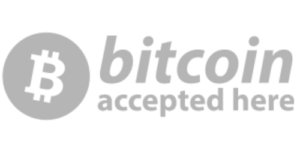When it comes to financing your small business, understanding the rates and terms of your loan is essential. One popular option for small businesses is the Small Business Administration (SBA) loan. SBA loans offer competitive interest rates and flexible terms that can help you achieve your business goals.
SBA loan rates are influenced by the Federal Reserve's market prime rate. Despite recent increases in interest rates, SBA loans continue to provide affordable financing options for small businesses. The SBA offers various loan programs, with the 7(a) loan being the most popular. These loans have flexible terms and can be used for a range of purposes, including working capital, equipment purchases, and real estate investments.
The SBA sets guidelines for interest rates, which are based on the prime rate plus a lender spread. The maximum spread lenders can charge is capped based on the loan size. Additionally, SBA loans come with fees, including guarantee fees and annual service fees, that vary based on the loan amount and maturity date.
Key Takeaways:
- SBA loans offer competitive interest rates and flexible terms.
- The SBA sets guidelines for interest rates based on the prime rate plus a lender spread.
- SBA loans come with guarantee fees and annual service fees that vary based on the loan amount and maturity date.
- The 7(a) loan is the most popular SBA loan program, providing flexible financing options for small businesses.
- Understanding SBA loan rates and terms can help you make informed decisions and navigate your financing options with confidence.
Current SBA 7(a) Loan Interest Rates
When considering SBA 7(a) loans, it's crucial to understand how the interest rates are determined. The interest rates for these loans are based on the loan size and vary accordingly. Let's take a closer look at the maximum interest rates for different loan sizes:
| Loan Size | Maximum Interest Rate |
|---|---|
| Up to $50,000 | 15% |
| $50,001 to $250,000 | 14.5% |
| $250,001 to $350,000 | 13% |
| $350,001 or more | 11.5% |
These maximum interest rates ensure that borrowers can access reasonable financing options based on their loan size. It's important to note that the actual interest rates offered by lenders may vary within these ranges, depending on factors such as creditworthiness and the overall financial health of the business.
For more detailed information on SBA loan interest rates and other financing options, you can visit the SBA website for the latest updates and guidelines.
How SBA Loan Rates are Set
The Small Business Administration (SBA) plays a critical role in setting the interest rates for SBA 7(a) loans, one of their most popular loan programs for small businesses. These interest rate guidelines ensure that borrowers receive fair and competitive rates, while also giving lenders the flexibility to offer financing options that suit their needs.
The SBA determines the interest rates for 7(a) loans based on the daily prime rate, which is set by the Federal Reserve. This rate serves as a benchmark for many lending institutions nationwide. In addition to the prime rate, lenders apply a lender spread to determine the final interest rate charged to borrowers.
The lender spread consists of the margin lenders add to the prime rate to cover their costs and earn a profit on the loans they make. This spread can result in either fixed or variable interest rates, depending on the lender's offerings and the borrower's preferences.
In some cases, lenders have the option to use an alternative benchmark rate instead of the daily prime rate. The SBA allows lenders to use either the one-month London Interbank Offered Rate (LIBOR) plus 3% or the SBA's optional peg rate. These alternatives provide lenders with additional flexibility in setting interest rates for their SBA 7(a) loans.
By setting interest rate guidelines and allowing for some flexibility with the lender spread and alternative benchmark rates, the SBA ensures that small businesses have access to affordable financing options that can support their growth and success.
| Interest Rate | SBA 7(a) Loan Amount |
|---|---|
| 1.5% – 2.75%* | Less than $25,000 |
| 2.25% – 3.75%* | $25,001 – $50,000 |
| 3.25% – 4.75%* | $50,001 – $250,000 |
| 3.75% – 5.25%* | $250,001 – $500,000 |
| 4.75% – 6.25%* | Above $500,000 |
SBA Loan Fees
When considering SBA loans, it's important to understand the fees associated with them. These fees help cover the costs that lenders and the Small Business Administration (SBA) incur during the loan process. SBA loans come with two types of fees: guarantee fees and annual service fees.
Guarantee Fees
Guarantee fees are incurred by borrowers and are based on the loan amount and maturity date. These fees apply to the guaranteed portion of the loan, which is the portion that the SBA guarantees repayment on in case of default. Lenders may pass on these fees to borrowers, but there are limits on the maximum amount that can be charged. Understanding guarantee fees can provide borrowers with a clear picture of the cost of their SBA loan.
Annual Service Fees
In addition to guarantee fees, SBA loans also have annual service fees. These fees compensate lenders for making and servicing SBA loans. Similar to guarantee fees, annual service fees vary based on the loan amount. Borrowers are responsible for paying these fees, which contribute to the administrative costs associated with the loan. It's important for borrowers to factor in annual service fees when assessing the overall cost of financing through an SBA loan.
To learn more about SBA loan fees and the specific guidelines set by the SBA, you can refer to the official SBA 7(a) Fees Notice published by the SBA.
SBA 504 Loans
SBA 504 loans are an excellent financing option for businesses interested in purchasing land, buildings, or major equipment. These loans are partially funded by certified development companies (CDCs), making them a reliable choice for small businesses seeking long-term, fixed-rate financing.
The loan terms for SBA 504 loans are highly favorable, typically ranging from 10 to 25 years, giving borrowers ample time to repay their debt comfortably. Moreover, the maximum loan amount for SBA 504 loans is set at $5.5 million, ensuring that businesses have access to substantial funding for their growth and expansion ventures.
When it comes to interest rates, SBA 504 loans are tied to the current market rate for 10-year U.S. Treasury bonds. This ensures that businesses can benefit from competitive and stable interest rates throughout the duration of their loan repayment.
Conclusion
Understanding SBA loan rates and terms is crucial for small business owners who are seeking affordable financing options. SBA loans offer competitive interest rates and flexible terms that can help businesses thrive. By staying informed about the current rates and guidelines set by the SBA, business owners can make informed decisions about their financing needs.
In addition to understanding the interest rates, it's also important for borrowers to be aware of the loan fees associated with SBA loans. By accurately evaluating the true cost of borrowing, small business owners can effectively plan their financial strategies.
With a solid understanding of the rates, terms, and fees of SBA loans, small business owners can confidently navigate their financing options and find the best solutions for their specific needs. Explore the various SBA loan programs and consult with lenders to find the financing that suits your small business goals. By leveraging SBA loan rates and terms, you can access the funding necessary to grow and succeed in today's competitive market.










